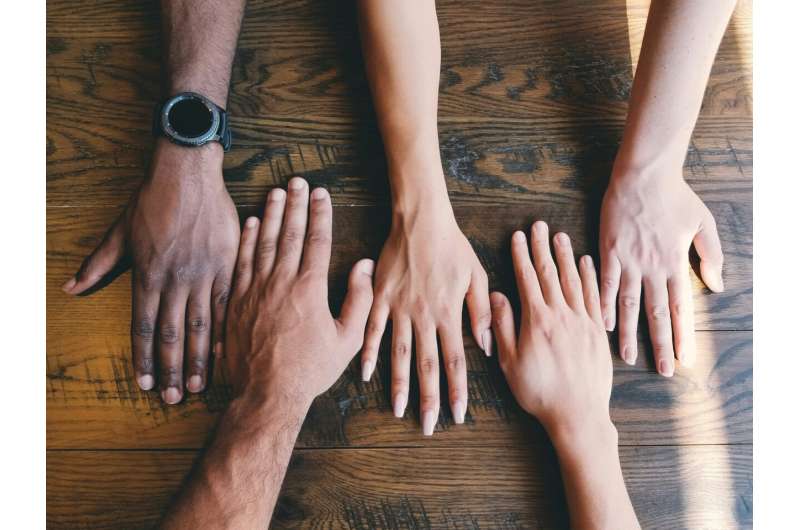This article has been reviewed according to Science X's editorial process and policies. Editors have highlighted the following attributes while ensuring the content's credibility:
fact-checked
reputable news agency
proofread
Mental Health Awareness Month: A time for BIPOC people to lift the stigma

Mental Health Awareness Month highlights the importance of mental well-being for everyone, but it's especially critical for those who have borne the brunt of its impacts. Celebrated in May, it's a time to reflect on practices, challenge stigmas and work towards a society where seeking help is seen as a strength rather than a weakness or shame.
But mental health challenges don't affect everyone equally. The past four years have laid bare the deep-seated inequities in our systems, with BIPOC+ communities and children disproportionately bearing the emotional burden.
Children who are Black, Indigenous or people of color face unique barriers to mental health care for a variety of reasons. They may have limited access to culturally competent providers, face language or cultural barriers, or experience negative stereotypes within the health care system. As a result, they often have worse mental health outcomes and higher rates of untreated mental illness compared to their white peers.
For BIPOC+ individuals, feeling "other-ed" is a constant pressure that is compounded by the current political climate's focus on division and exclusion. The stress of being constantly reminded of one's differences and faced with hostility can lead to heightened anxiety, depression and other mental health issues.
In a society that often fails to recognize or validate their experiences, BIPOC+ individuals bear the additional burden of navigating these challenges without the support that is readily available to many of their white counterparts.
That's why Mental Health Awareness Month is crucial for BIPOC+ communities. It's an opportunity to shine a light on their resilience, strength, and determination in the face of adversity and to challenge the harmful stereotypes that often obscure their experiences. It's a chance to uplift voices, challenge stereotypes, and promote healing within these communities and beyond. It's a time to recognize the strength of BIPOC+ individuals and the courage it takes to seek help in a system that often fails to serve them equitably.
To make Mental Health Awareness Month meaningful for BIPOC+ communities:
- Amplify BIPOC+ voices and experiences so that they are heard and recognized as valid and essential contributions to the conversation. This includes elevating the stories of BIPOC+ youth and children, who are often overlooked in discussions of mental health.
- Ensure resources are accessible and inclusive so that everyone, regardless of their background or beliefs, can find the support they need. This means providing culturally appropriate care, language services and welcoming environments for BIPOC+ individuals and families.
- Challenge stereotypes and stigma within these communities by educating ourselves and others and standing up against bias and discrimination wherever it's encountered. This includes actively working to dismantle systemic racism and discrimination in our health care and other institutions.
- Advocate for policies addressing social determinants of mental health, such as access to quality health care, housing and education, which are crucial for the well-being of all people but are particularly important for BIPOC+ individuals who have historically faced systemic barriers to these resources.
2024 The Fulcrum. Distributed by Tribune Content Agency, LLC.



















